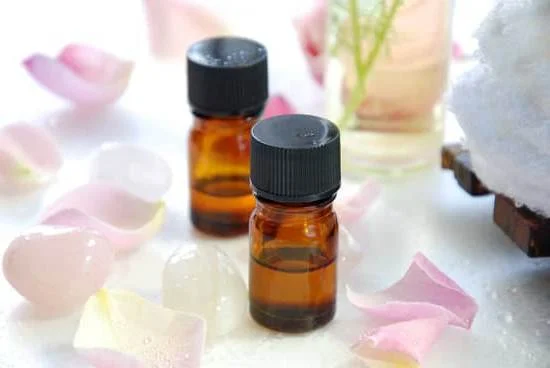The Covid-19 pandemic has brought about a range of symptoms, with one of the most commonly reported being the loss of smell, also known as anosmia. This sensory impairment has had a significant impact on the daily lives of those affected, leading researchers to explore various methods for addressing this issue.
Aromatherapy has emerged as a potential natural remedy for treating Covid-related loss of smell, offering hope to individuals seeking to regain their sense of smell and improve their overall well-being.
Aromatherapy is a holistic healing practice that utilizes essential oils extracted from plants to promote physical, emotional, and mental health. The use of essential oils in aromatherapy has gained attention for its potential to stimulate the olfactory system and aid in regaining the sense of smell lost due to Covid-19. This alternative treatment approach has piqued the interest of healthcare professionals and individuals looking for non-invasive ways to manage anosmia and enhance their recovery process.
As we delve deeper into the impact of Covid-19 on the sense of smell and seek effective ways to address anosmia, it is crucial to explore the potential benefits of aromatherapy for treating this condition. By understanding how aromatherapy can help individuals recovering from Covid-related loss of smell, we are better equipped to integrate this natural remedy into daily routines and improve overall well-being.
With a focus on exploring different essential oils and methods of aromatherapy, we can discover practical approaches for harnessing the power of scent in promoting healing and recovery.
What Is Aromatherapy
Aromatherapy is a holistic healing practice that utilizes the therapeutic properties of essential oils to promote physical, emotional, and mental well-being. These essential oils are extracted from various parts of plants, including flowers, leaves, bark, and roots, and are renowned for their aromatic and medicinal properties.
Aromatherapy has been used for centuries in different cultures as a natural remedy for addressing a wide range of health concerns, including stress relief, relaxation, improved sleep quality, and even the alleviation of certain symptoms associated with respiratory conditions.
The concept of aromatherapy revolves around the belief that inhaling the aroma of essential oils can stimulate the limbic system in the brain, which is responsible for emotions, behavior, motivation, and long-term memory. As a result, specific essential oils are thought to have the ability to evoke various emotional responses and physiological effects when inhaled or applied to the skin.
Additionally, aromatherapy is often used in conjunction with other complementary practices such as massage therapy or meditation to enhance its overall benefits.
Essential Oils in Aromatherapy
Essential oils used in aromatherapy are highly concentrated plant extracts that contain potent compounds with therapeutic properties. Each essential oil possesses distinct characteristics and potential health benefits. Some popular essential oils commonly used in aromatherapy include lavender for its calming effects, peppermint for its invigorating scent and potential pain-relieving properties, eucalyptus for its respiratory support benefits, and tea tree for its antimicrobial and immune-boosting properties. The selection of essential oils relies on their intended purpose and individual preferences.
Methods of Application
Aromatherapy offers multiple methods of application based on personal preferences and desired effects. Inhalation involves breathing in the aroma of essential oils through methods such as direct palm inhalation or using diffusers. Topical application involves diluting essential oils with carrier oils and applying them to specific areas of the body through massage or compresses.
There are also ways to incorporate essential oils into daily routines such as adding them to bath water or using them in household cleaning products. Overall, these methods aim to harness the therapeutic benefits of essential oils for holistic healing and wellness.
Aromatherapy Principles
Aromatherapy is founded on principles that prioritize natural healing modalities aimed at promoting harmony between mind, body, and spirit. The practice emphasizes individualized care by tailoring specific essential oil blends according to an individual’s unique needs.
The versatile nature of aromatherapy makes it suitable for various applications ranging from managing stress and anxiety to supporting overall well-being. As research continues to explore the potential benefits of aromatherapy for Covid-related loss of smell among other health concerns,it offers promising avenues for individuals seeking alternative approaches to supplement their recovery process.
How Aromatherapy Can Help
Aromatherapy has been gaining attention as a potential treatment for Covid-related loss of smell. This alternative therapy involves the use of essential oils to stimulate the sense of smell and promote overall well-being. It is believed that aromatherapy may help in improving the olfactory system’s function and aiding in the recovery from anosmia, or the loss of smell, caused by Covid-19.
Several studies have suggested that certain essential oils used in aromatherapy may have therapeutic properties that can help improve the sense of smell. For instance, peppermint oil is known for its refreshing and invigorating scent, which may help in stimulating olfactory receptors and promoting a sense of clarity. Similarly, eucalyptus oil is recognized for its ability to clear nasal passages and reduce congestion, potentially aiding individuals experiencing smell loss due to Covid-19.
In addition to its potential impact on the olfactory system, aromatherapy is also known for its calming and stress-reducing effects. The use of essential oils like lavender, chamomile, or bergamot can promote relaxation and emotional well-being, which could be beneficial for individuals dealing with the anxiety and frustration associated with losing their sense of smell due to Covid-19.
| Aromatherapy Benefit | Example Essential Oils |
|---|---|
| Stimulating olfactory receptors | Peppermint oil |
| Reducing congestion | Eucalyptus oil |
| Promoting relaxation | Lavender, chamomile, bergamot oils |
Best Essential Oils for Covid Loss of Smell
When it comes to using aromatherapy for Covid-related loss of smell, specific essential oils have shown promise in helping to stimulate the sense of smell and aid in the recovery process. These oils not only have aromatic properties but also therapeutic benefits that can support the olfactory system. Here are some of the best essential oils known for their ability to stimulate the sense of smell and their potential role in aromatherapy for Covid patients.
Eucalyptus Oil
Eucalyptus oil is well-known for its refreshing and invigorating scent. It has been used in traditional medicine to support respiratory health and clear nasal passages. For individuals experiencing loss of smell due to Covid-19, inhaling eucalyptus oil through steam inhalation or diffusing it at home may help to reawaken the olfactory nerves and improve the sense of smell over time.
Rosemary Oil
Rosemary oil is another essential oil that is believed to have a positive impact on cognitive function and mental clarity. Its herbaceous scent may help to activate the olfactory receptors and enhance the perception of aroma. Using rosemary oil in a personal inhaler or diluted in a carrier oil for topical application near the nasal area could potentially aid in regaining the sense of smell for those affected by Covid-related anosmia.
Lemon Oil
Lemon oil is recognized for its uplifting and refreshing fragrance, making it a popular choice for aromatherapy. The zesty aroma of lemon oil can help stimulate the olfactory senses, potentially assisting individuals with Covid-related loss of smell. Whether diffused in the air or added to household cleaning products, lemon oil may contribute to improving scent perception and overall well-being during recovery from Covid-19.
These essential oils are just a few examples of natural remedies that can be incorporated into an aromatherapy regimen specifically tailored for addressing loss of smell associated with Covid-19. However, it’s important to consult with a healthcare professional before using essential oils, especially if you are currently undergoing treatment or have underlying health conditions.
Methods of Aromatherapy
Aromatherapy has been gaining attention as a potential holistic approach to help alleviate the symptoms of Covid-related loss of smell. When it comes to practicing aromatherapy at home, there are several methods that individuals can explore to potentially stimulate their olfactory system and regain their sense of smell. These methods include diffusion, inhalation, and topical application, each offering unique benefits for those experiencing anosmia or hyposmia due to Covid-19.
Diffusion is a popular method of aromatherapy that involves dispersing essential oils into the air, typically through the use of a diffuser. This allows the aroma of the essential oils to fill the room, creating a pleasant and therapeutic environment.
Inhalation, on the other hand, involves directly breathing in the scent of essential oils through techniques such as steam inhalation or using an aromatherapy inhaler. Lastly, topical application involves applying diluted essential oils to the skin through massage or using them in baths, allowing for absorption and potential therapeutic effects.
Studies have shown that certain essential oils like eucalyptus, peppermint, and lemon may have properties that could help stimulate the olfactory system in individuals experiencing loss of smell related to Covid-19. Additionally, integrating different methods of aromatherapy into one’s daily routine may provide a multi-sensory approach to potentially aid in recovery from anosmia or hyposmia.
| Methods | Benefits |
|---|---|
| Diffusion | Fills the room with therapeutic aroma |
| Inhalation | Potential direct stimulation of olfactory system |
| Topical Application | Possible absorption and therapeutic effects |
Aromatherapy Safety Precautions
Aromatherapy can be a beneficial practice for individuals recovering from Covid-19 and experiencing loss of smell. However, it is important to exercise caution when using essential oils, as they are potent substances that can cause irritation or adverse reactions if not used properly. Here are some safety precautions and guidelines to consider when incorporating aromatherapy into your recovery routine:
1. Consult with a healthcare professional: Before starting any aromatherapy regimen, it is essential to consult with a healthcare professional, especially if you have underlying health conditions or are currently undergoing treatment for Covid-19. A medical professional can provide personalized advice and recommendations based on your individual health status.
2. Choose high-quality essential oils: When selecting essential oils for aromatherapy, opt for high-quality, pure oils from reputable sources. Avoid synthetic fragrances or diluted products, as they may not offer the same therapeutic benefits and could potentially exacerbate symptoms of loss of smell.
3. Dilute essential oils properly: Essential oils are highly concentrated substances and should be diluted before use to avoid skin irritation or respiratory issues. Always follow recommended dilution ratios and guidelines provided by trusted sources such as certified aromatherapists or reputable essential oil companies.
4. Perform a patch test: Before using any new essential oil, perform a patch test on a small area of skin to check for potential allergic reactions or sensitivities. This is particularly important for individuals recovering from Covid-19 whose immune systems may be more sensitive.
5. Practice proper ventilation: When diffusing essential oils at home, ensure proper ventilation in the area to prevent the buildup of strong odors that could be overwhelming, especially for individuals with compromised olfactory systems due to Covid-19.
By following these safety precautions and guidelines, individuals recovering from Covid-19 can safely incorporate aromatherapy into their wellness routines to potentially aid in the recovery of their sense of smell while promoting overall well-being during the healing process.
Integrating Aromatherapy Into Daily Routine
In conclusion, the use of aromatherapy for Covid-related loss of smell can provide a holistic approach to aid in the recovery process. By understanding the impact of Covid-19 on the sense of smell and exploring the concept of aromatherapy, individuals can benefit from the potential advantages of using essential oils for treating anosmia. Aromatherapy offers an alternative method to stimulate the olfactory system and promote overall well-being during the recovery process.
The best essential oils for Covid loss of smell, such as eucalyptus, rosemary, and peppermint, have shown promise in stimulating the sense of smell when used in aromatherapy practices. Different methods of aromatherapy, including diffusion, inhalation, and topical application, can be effective ways to incorporate essential oils into daily routines. However, it is important to adhere to safety precautions and guidelines for the proper use of essential oils, especially for individuals recovering from Covid.
Integrating aromatherapy into daily life can offer practical tips and advice to support overall well-being and aid in the recovery from Covid-related loss of smell. As more research continues to emerge on the benefits of aromatherapy for anosmia caused by Covid-19, individuals are encouraged to explore this holistic approach as part of their recovery journey.
With its potential therapeutic effects on the olfactory system and overall wellness, aromatherapy presents itself as a valuable tool in addressing the challenges posed by Covid-related loss of smell.
Frequently Asked Questions
What Essential Oils Help Regain Smell After COVID?
Essential oils such as eucalyptus, peppermint, and lemon have been reported to help regain the sense of smell after COVID-19. These oils can be diffused or diluted for inhalation to potentially aid in olfactory recovery.
What Can I Do to Get My Sense of Smell Back After Covid?
To help regain your sense of smell after COVID-19, you can try smelling familiar scents like essential oils or perfumes on a daily basis. Additionally, participating in olfactory training by smelling different scents regularly may also assist in recovery.
Does Aromatherapy Work With No Sense of Smell?
Aromatherapy may still be beneficial even with no sense of smell. The therapeutic benefits of essential oils can still be experienced through their absorption into the bloodstream and the emotional response they may evoke. Aromatherapy massage or using them in skincare products are alternative ways to experience their benefits without relying solely on the sense of smell.

Are you looking for a natural way to improve your health and wellbeing?
If so, aromatherapy may be the answer for you.





